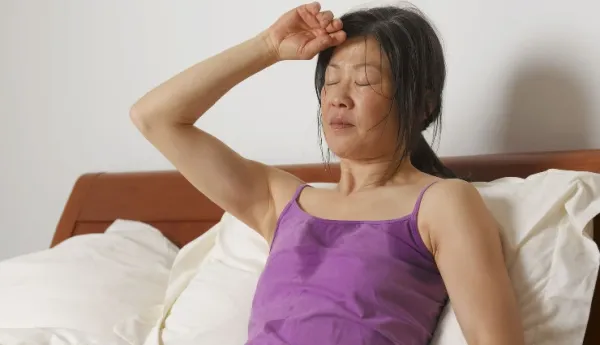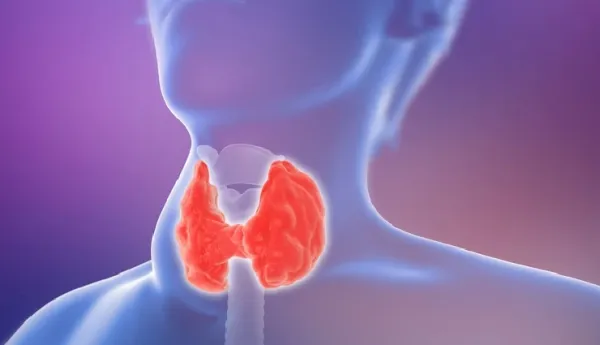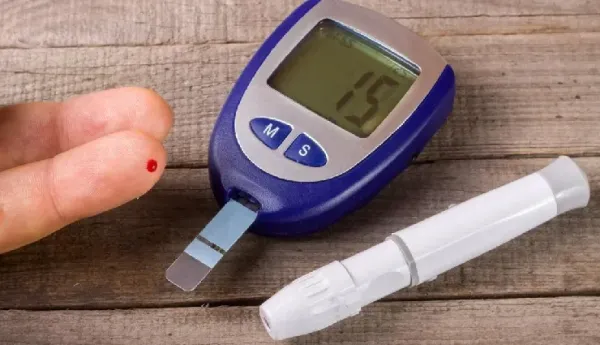

Everyone sweats, but how and when we sweat can vary significantly from person to person. If you find yourself waking up drenched in sweat, you're not alone. While occasional night sweating can result from nightmares or a warm room, persistent or excessive night sweats may signal something more serious.
Night sweats refer to intense sweating during sleep, often soaking clothes and sheets, and are not always caused by an overheated environment. They’re more common in women experiencing hormonal changes, such as menopause, but can also stem from underlying health conditions or medications. Symptoms often associated with night sweats include flushing, chills, or fever.
So, what might be causing your night sweats? Let’s look at 10 possible reasons:

# Fighting an Infection
Your body raises its temperature to combat infections like pneumonia, tuberculosis, or malaria. Night sweats may be your body’s way of fighting back. If the sweating is extreme, consult a doctor—it could be linked to a fever or other illness.
# Menopause
During perimenopause and menopause, up to 80% of women experience hot flashes and night sweats due to hormonal fluctuations. For some, these symptoms are severe enough to disrupt daily life and sleep.
# Cancer
Night sweats—especially drenching ones—can be an early symptom of cancers like lymphoma, leukaemia, liver cancer, or bone cancer. These are often accompanied by other signs such as unexplained weight loss and fever.

# Over-Training
Even healthy individuals can experience night sweats, especially athletes or those engaging in intense workouts. Overtraining can throw off your body’s temperature regulation, leading to nighttime perspiration.
# Idiopathic Hyperhidrosis
This is a condition where the body sweats excessively without any identifiable cause. While it can occur during the day, it often continues during sleep, causing heavy night sweating.
# Hormonal Imbalances
Hormonal disorders like pheochromocytoma, carcinoid syndrome, or low estrogen levels in women can disrupt the brain’s temperature regulation (via the hypothalamus), leading to night sweats. These issues may mimic hot flashes and cause sweating even in a cool room.

# Hypoglycaemia
Low blood sugar can trigger night sweats. People with hypoglycaemia may also wake up feeling fatigued, with headaches, or find their bed sheets damp.
# Low Testosterone in Men
Men can experience hot flashes and night sweats too—often linked to low testosterone levels. This hormone helps regulate everything from muscle mass to libido. If you notice symptoms, consult a healthcare provider.
# HIV/AIDS
Untreated HIV can progress to AIDS, weakening the immune system and making the body susceptible to infections. Drenched night sweats, fatigue, rashes, chronic diarrhoea, and oral lesions are some of the associated symptoms.
# Neurological Disorders
Conditions affecting the nervous system—such as stroke, brain injuries, autonomic dysreflexia, or neuropathy—can interfere with how your body controls sweat production, often resulting in excessive night sweating.
-
GST: There can be a big relief in tax before Diwali, this is how the common man will benefit from GST reform..

-
Patna High Court announces Stenographer Group-C recruitment, know when and how to apply

-
Golden chance to buy gold, prices fell for the second consecutive day in the bullion market

-
Airport: The truth about free entry to airport lounges with credit cards, know whose pockets are loose..

-
NRIs will be able to do UPI transactions without SIM., AU Small Finance Bank launches new service in 12 countries
